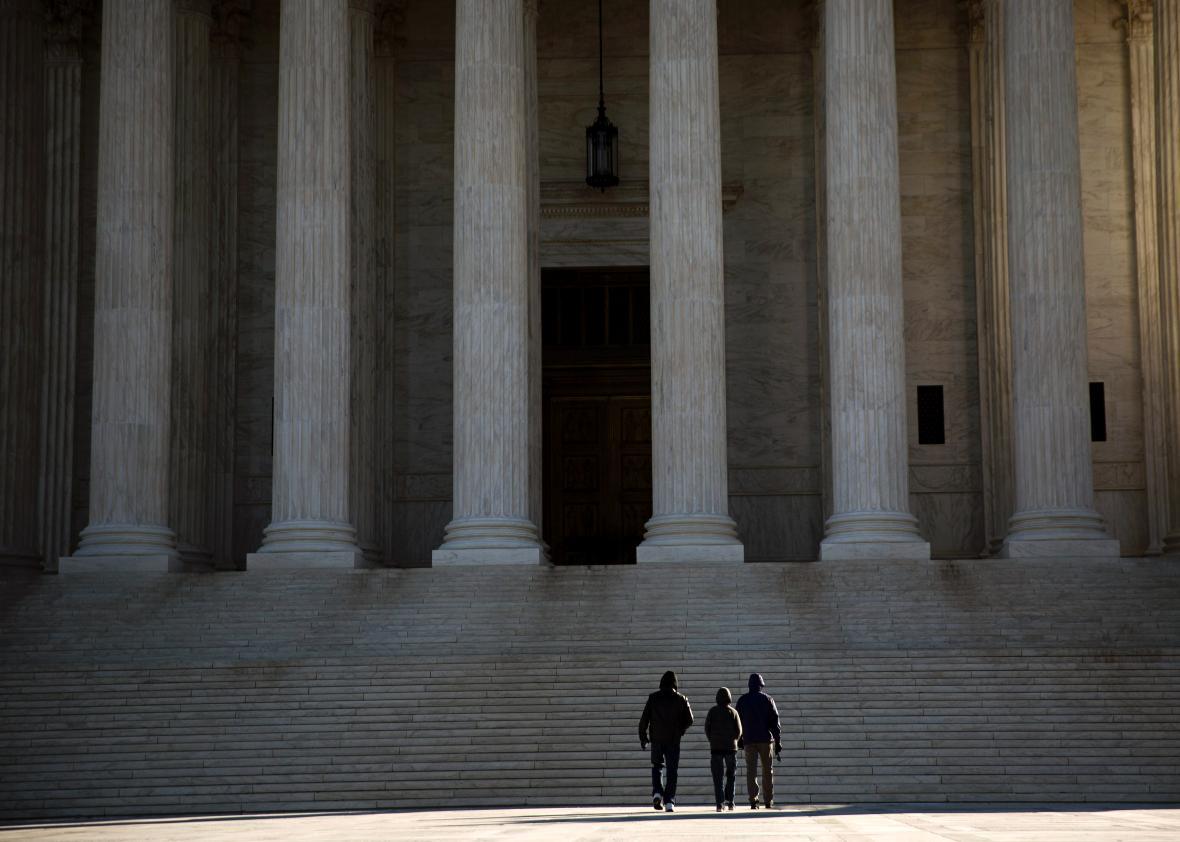The Supreme Court just made it a lot harder to get away with insider trading. Good!
You are surely wondering: Wasn’t it already illegal to engage in insider trading? Well, yes. But a 2014 court decision made it a heck of a lot harder to prove.
The case the Supreme Court ruled on Tuesday concerned Bassam Salman, a Chicago-area grocery wholesaler. He received stock-trading tips from his future brother-in-law, Michael Kara. Kara, in turn, learned of the insights from his brother, Maher Kara, then an analyst with Citigroup. The siblings were close and talked frequently. Things get said. You know how that goes. You ask about mom, you talk about your soon-to-be in-law, someone shares a stock insight. Happens to us all!
Salman’s lawyers argued his conviction should be overturned because Maher Kara did not benefit financially from sharing the information. The Supreme Court unanimously disagreed, with Justice Samuel Alito writing that Maher Kara “breached his duty of trust and confidence” to his employer, an obligation Salman also violated when he acted on the tips knowing full well that he was trading on confidential information.
This should have been a no-brainer of a decision. Historically, insider trading prosecutions took the position that an insider tip was an insider tip, and whether the leaker had a monetary motivation was not relevant. But in 2014, a New York appeals court overturned the insider trading convictions of two hedge fund traders, Anthony Chiasson and Todd Newman, ruling that unless the confidential information used to make the trades was shared in return for a gain of some sort, it was not legally actionable. The scheme Chiasson and Newman were initially convicted of involved a cast of tipsters who passed along insights like they were playing telephone. (One blog post actually referred to the two men as “downstream tippees.”)
The Supreme Court subsequently refused to hear an appeal in the case. The prosecutor, U.S. Attorney for the Southern New York District Preet Bharara, predicted bad things to come. “The Newman decision goes some way to creating an obvious roadmap for unscrupulous investors,” Bharara said at the time. “You can think of this as a potential bonanza for friends and family of rich people with access to material non-public information.” He would subsequently go on to drop charges in another high-profile case, this one involving Michael Steinberg, a prominent fund manager at the hedge fund SAC Capital Advisors, who was convicted on insider trading charges in 2013.
No surprise, Bharara considers himself a winner today, even though Newman will not be relitigated. The Supreme Court decision makes it much less likely that the convictions of a number of others Bharara has successfully prosecuted, including former Goldman Sachs partner Rajat Gupta will be overturned. His office quickly released a statement celebrating the decision saying, “The court stood up for common sense and affirmed what we have been arguing from the outset—that the law absolutely prohibits insiders from advantaging their friends and relatives at the expense of the trading public. Today’s decision is a victory for fair markets and those who believe that the system should not be rigged.”
Yes to all that. Insider trading is wrong, and not just because, when unpunished, it allows a few lucky upscale slobs to profit on proprietary information. It’s wrong because it ultimately destroys faith in our system of governance and rules.
The stock market works as an investment tool for many Americans, not just a few connected insiders, in part because of the trust we have in it. We believe it is an honest mechanism for establishing value, and we believe that information about investments is equally available to all of us, should we be willing to do the work of ferreting it out. If our trust in it is breached too many times without consequences, many will likely come to believe the stock market is a scheme to benefit a few privileged insiders and pull out entirely. Not only would that likely be harmful for their financial future, it would also bode ill for American society writ large, which depends on our belief in its fairness for it to function.
You don’t need me to tell you that faith took a huge hit in the wake of the housing bubble blowup and the Great Recession, when, as it has famously been observed, the bankers got bailed out and received gigantic bonuses even as the majority of us saw our net worths plunge and millions lost homes to foreclosure. It could be argued that the victory of President-elect Donald Trump is in part a direct result of all that. His appeal was based not on his honesty and moral rectitude but on his supposed business acumen, some of which consisted of seemingly taking advantage of others, like the students who paid more than $25,000 to attend Trump University. Now, one argument goes, he’ll put those street smarts to work on the behalf of all of us. It’s the ultimate skeptics play.
May this Supreme Court decision do its part to roll back the miasma of cynicism that’s so corroding to us all.
